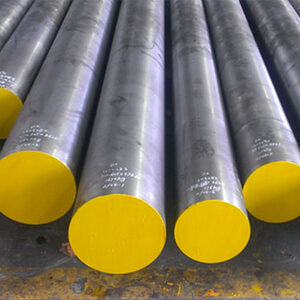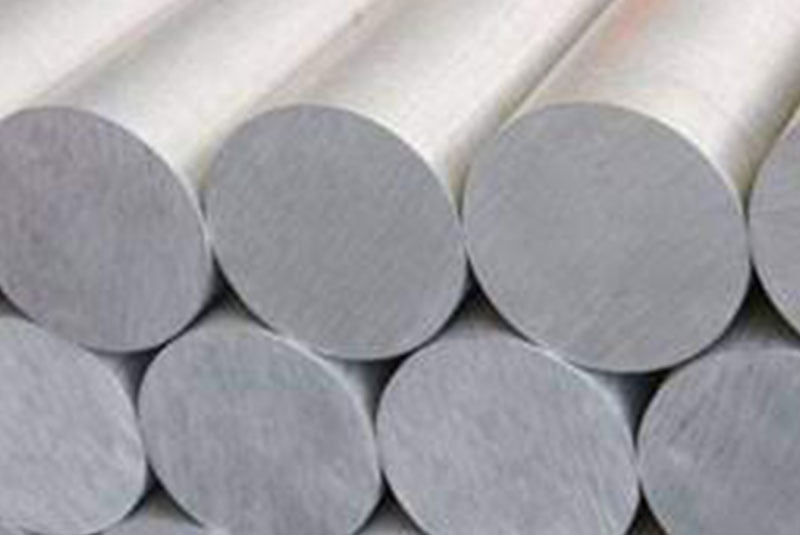Welcome to My Blog!
Before we dive into the content, I’d love for you to join me on my social media platforms where I share more insights, engage with the community, and post updates. Here’s how you can connect with me:
Facebook:https://www.facebook.com/profile.php?id=100085401406977
LinkedIn:https://www.linkedin.com/showcase/102680001/admin/dashboard/
Now, let’s get started on our journey together. I hope you find the content here insightful, engaging, and valuable.
Introduction

In the world of modern engineering, the choice of materials plays a crucial role in determining the success and durability of projects. Among the various materials used, Qilu 4330 steel stands out for its unique properties and applications. Known for its excellent strength, toughness, and versatility, Qilu 4330 steel is increasingly being utilized in diverse engineering projects. This article explores the role of Qilu 4330 steel in contemporary engineering, highlighting its properties, benefits, and applications.
Understanding Qilu 4330 Steel
Qilu 4330 steel is a high-quality alloy steel known for its balanced combination of strength and toughness. It is part of the 4300 series of alloy steels, which are commonly used in demanding engineering applications due to their superior mechanical properties.
Key Properties of Qilu 4330 Steel
- High Strength: Offers exceptional tensile and yield strength, making it suitable for heavy-duty applications.
- Good Toughness: Provides resistance to impact and wear, ensuring durability under harsh conditions.
- Excellent Hardenability: Capable of achieving high hardness through heat treatment processes.
- Good Weldability: Can be welded using various techniques, making it versatile for different fabrication methods.
Typical Specifications
-
Chemical Composition:
- Carbon (C): 0.28–0.33%
- Manganese (Mn): 0.60–0.90%
- Chromium (Cr): 0.80–1.10%
- Nickel (Ni): 1.65–2.00%
- Molybdenum (Mo): 0.15–0.25%
-
Mechanical Properties:
- Ultimate Tensile Strength: 850–1,100 MPa
- Yield Strength: 700–900 MPa
- Elongation: 12–15%
- Impact Toughness: High
Benefits of Using Qilu 4330 Steel
The advantages of 4330 steel make it a preferred choice for various engineering applications. Here are some key benefits:
Enhanced Durability
Qilu 4330 steel’s high strength and toughness contribute to the longevity of components and structures. This durability is particularly valuable in applications subject to heavy loads and harsh environments.
Versatility
Due to its balanced properties, 4330 steel can be used in a wide range of engineering projects. It is suitable for applications requiring both strength and impact resistance, such as automotive components, structural parts, and machinery.
Excellent Heat Treatment Response
Qilu 4330 steel responds well to heat treatment, allowing for the adjustment of its hardness and strength. This flexibility enables engineers to customize the steel’s properties to meet specific project requirements.
Improved Weldability
The steel’s good weldability allows for efficient fabrication and assembly of complex structures. It can be welded using standard techniques, reducing the need for specialized equipment and processes.
Cost-Effectiveness
While 4330 steel offers high performance, it is often more cost-effective compared to other high-strength alloys. Its combination of properties and cost efficiency makes it a practical choice for many engineering projects.
Applications of Qilu 4330 Steel
Qilu 4330 steel is used in various engineering applications where its properties can be fully utilized. Here are some common applications:
Automotive Components
The high strength and toughness of 4330 steel make it ideal for critical automotive components such as crankshafts, gears, and drive shafts. Its durability helps in enhancing the performance and reliability of vehicles.
Structural Parts
In construction and heavy machinery, 4330 steel is used for structural components like beams, columns, and supports. Its ability to withstand significant loads and impacts is crucial for the stability of structures.
Oil and Gas Industry
The steel’s resistance to wear and impact makes it suitable for parts used in the oil and gas industry, such as drill bits, pipes, and valves. These components must endure harsh operating conditions, making Qilu 4330 steel a valuable material.
Aerospace Components
In aerospace applications, 4330 steel is utilized for parts that require a combination of high strength and toughness, such as landing gear components and structural elements. Its properties contribute to the safety and performance of aerospace equipment.
Industrial Machinery
The steel is also used in the manufacturing of industrial machinery and equipment. Its durability and hardness are essential for components subjected to heavy wear and mechanical stresses.
Comparing Qilu 4330 Steel with Other Materials
To better understand the advantages of 4330 steel, it is useful to compare it with other commonly used materials in engineering.
Comparison Table
| Property | Qilu 4330 Steel | 4140 Steel | 4340 Steel | Stainless Steel 316 |
|---|---|---|---|---|
| Tensile Strength | 850–1,100 MPa | 650–850 MPa | 930–1,100 MPa | 520–620 MPa |
| Yield Strength | 700–900 MPa | 415–620 MPa | 790–930 MPa | 205–275 MPa |
| Elongation | 12–15% | 20–25% | 15–20% | 40% |
| Impact Toughness | High | Moderate | High | High |
| Weldability | Good | Good | Good | Excellent |
| Heat Treatment Response | Excellent | Good | Excellent | Poor |
Tips for Using Qilu 4330 Steel Effectively

To maximize the benefits of Qilu 4330 steel in engineering projects, consider the following tips:
Proper Heat Treatment
Ensure that 4330 steel undergoes the appropriate heat treatment to achieve the desired hardness and strength. This process should be carefully controlled to optimize the steel’s properties for specific applications.
Welding Techniques
When welding Qilu 4330 steel, use suitable welding techniques and preheat the material if necessary. Proper welding procedures will help maintain the steel’s properties and ensure strong, reliable joints.
Quality Control
Implement rigorous quality control measures to verify the steel’s properties and performance. Regular testing and inspections will help identify any potential issues early and ensure the steel meets project specifications.
Design Considerations
Incorporate the steel’s properties into the design process to optimize its performance. Consider factors such as load requirements, impact conditions, and environmental factors to ensure the steel is used effectively.
Maintenance
Regular maintenance of components made from 4330 steel is essential to ensure their longevity and performance. Monitor for signs of wear and address any issues promptly to extend the service life of the components.
Conclusion
Qilu 4330 steel plays a significant role in modern engineering projects due to its exceptional properties and versatility. Its high strength, toughness, and heat treatment response make it suitable for a wide range of applications, from automotive and aerospace components to structural parts and industrial machinery. By understanding the benefits and applications of Qilu 4330 steel, engineers can make informed decisions and leverage its properties to enhance the performance and durability of their projects.
FAQ
Q:What makes Qilu 4330 steel suitable for demanding engineering applications?
A:Qilu 4330 steel’s high strength, toughness, and excellent heat treatment response make it ideal for applications requiring durability and performance under harsh conditions.
Q:How does Qilu 4330 steel compare to other alloy steels?
A:Qilu 4330 steel offers a balanced combination of properties, making it versatile for various applications. Compared to other alloy steels like 4140 and 4340, it provides competitive strength and toughness while being cost-effective.
Q:What are common applications of Qilu 4330 steel?
A:Common applications include automotive components, structural parts, oil and gas industry components, aerospace parts, and industrial machinery.
Q:How should Qilu 4330 steel be heat-treated for optimal performance?
A:Qilu 4330 steel should be heat-treated according to the specific requirements of the application. This typically involves processes such as quenching and tempering to achieve the desired hardness and strength.
Q:What maintenance practices are recommended for components made from Qilu 4330 steel?
A:Regular maintenance includes monitoring for wear, addressing any issues promptly, and ensuring that components are kept in good condition to extend their service life and maintain performance.
